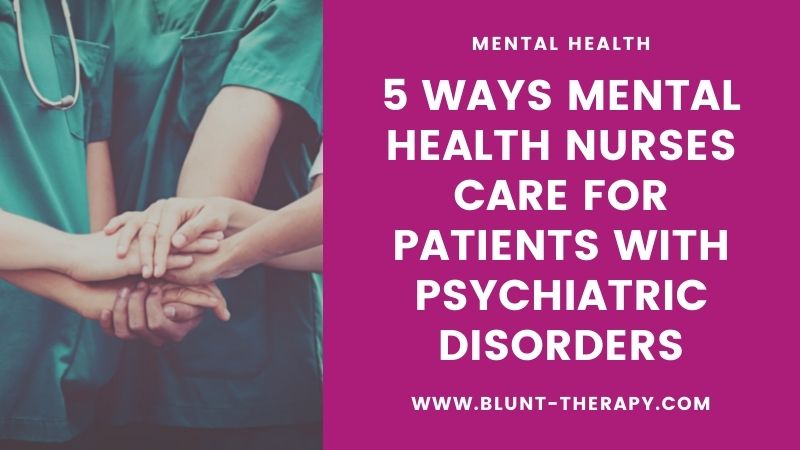Table of Contents
Affiliate link notice: As an affiliate of BetterHelp and other third-party vendors, We will receive compensation if you make a purchase using the links provided on this page. For more information, visit our disclosure page.
Last Updated on December 1, 2022 by Randy Withers, LCMHC
Nursing is a great career because it allows you to customize what you do. There is something for those who thrive in fast-paced, high-pressure environments. There is something for those that need to live life in the slow lane.
There is work for those who want to get out there and see the world and for those who want to be in the thick of the action. There is a position for everyone because health is universal. As soon as there is another person involved, there is a need for a nurse.
Not every person or organization can afford to have their own dedicated nurse, but many do and actively recruit talented nurses.
In short, you can live your dream career as a nurse because there are so many ways to work where you are passionate and continue to do great work as a nurse.
Of course, many of these job roles are only available to the highest level of nurses, APRNs. To open up your career, therefore, you need to invest in further training.

APRN Roles to Consider
There are several roles to consider as an APRN. The four main types include Nurse Practitioners, Clinical Nurse Specialists, Nurse Anesthetists, and Nurse-Midwives. Finding the right role for you will mean understanding the type of work each APRN does, as well as the area you wish to specialize in.
Nurse Practitioners
Nurse Practitioners diagnose and treat. Their primary focus is on prevention and health management, and in many states, they are instrumental in helping with the primary care physician shortage. In some states, they also have the ability to write and hand out prescriptions.
There are a few different kinds of NPs, as NPs specialize in a certain age demographic or even gender. The most common type of NP is the family nurse practitioner.
To become an FNP, you will need either a DNP or MSN Family Nurse Practitioner degree. It is important to remember with the DNP option that you will essentially be earning your MSN at the same time. It takes around 70 credits to go from a BSN to a DNP and around 45 credits to go from a BSN to an MSN. You can earn your DNP later on after earning your MSN and transfer certain credits and clinical hours to speed up the process.
Clinical Nurse Specialists
Clinical Nurse Specialists often specialize in one area of medicine, like oncology or mental health. They care for patients directly and also advocate and work to improve treatment for all with that condition.
Oncology Clinical Nurse Specialists, for example, are trained not just to help care for the physiological needs of cancer patients but also their psychological needs. In addition, they are trained in treatment, prevention, detection, diagnosis, rehabilitation, and end-of-life care.
Nurse Anesthetists
Nurse Anesthetists provide anesthesia to patients going through surgery. They can be found in hospitals, clinics, and even in dental offices. Being licensed to provide anesthesia is a critical skill, which is why Nurse Anesthetists earn the most out of all other APRN roles.
Nurse-Midwives
Nurse-midwives help expecting parents through every stage, from conception to birth and even beyond. In addition, they often have patients of their own and operate on an at-home basis.
As a result, nurse midwives have seen a massive resurgence in recent years, as more expecting parents turn to them for more hands-on, compassionate care than they could receive at a clinic or doctors, especially if they do not live near a recommended option.
Future Career Paths You Can Take in Nursing
While most nurses will want to continue working as a nurse with a focus on patients, that is not the only career route that you can take.
You can also work in research, and you can work in healthcare policy and patient advocacy. You can even work in education and make it your mission to train the next generation of nurses.
These routes mean that you can continue to use your experience in nursing, even if you want to slow down and move away from patient care.
Alternative Workplaces to Consider
There are multiple workplaces that you can work in. The most obvious is of course hospitals and clinics, but these are just the start. If healthcare continues to become decentralized, more nurses will be needed in a greater range of workplaces to provide palliative and preventative care to patients around the country.
Telehealth is also a possibility for the future, allowing you to provide great one-on-one care for those in remote areas that are often vastly overlooked by current healthcare settings.
And those are just the healthcare settings available to you. APRNs can work on movie sets and help oversee stunts in case there is an injury. They can work privately with patients and provide at-home care and support. They can work at events. They can work on research expeditions. They can work in-country or out of country. They can work in cities or in the furthest, most remote areas in the world.
You can work where there are people which massively opens up your options.
In some states, you can even work for yourself. For example, some states allow NPs to practice independently, allowing them to even open up their own clinic. Currently, there are 28 states that allow this authority for NPs and the District of Columbia.
Then there is also the eNLC to consider, which makes it easy for nurses to exchange their license to practice in another state without having to retake the licensing exam.
There are so many alternative workplaces to consider, allowing you to do the great work of a nurse in a workplace that interests you and that you feel passionate about.
Find Your Pace and Your Place
There is nothing wrong with not being suited for a fast-paced environment. There is nothing wrong with wanting more challenging work. Nursing offers options for everyone.
The important thing is that you find the pace that works for you, and then the workplace that allows you to work in a way that suits you best.









